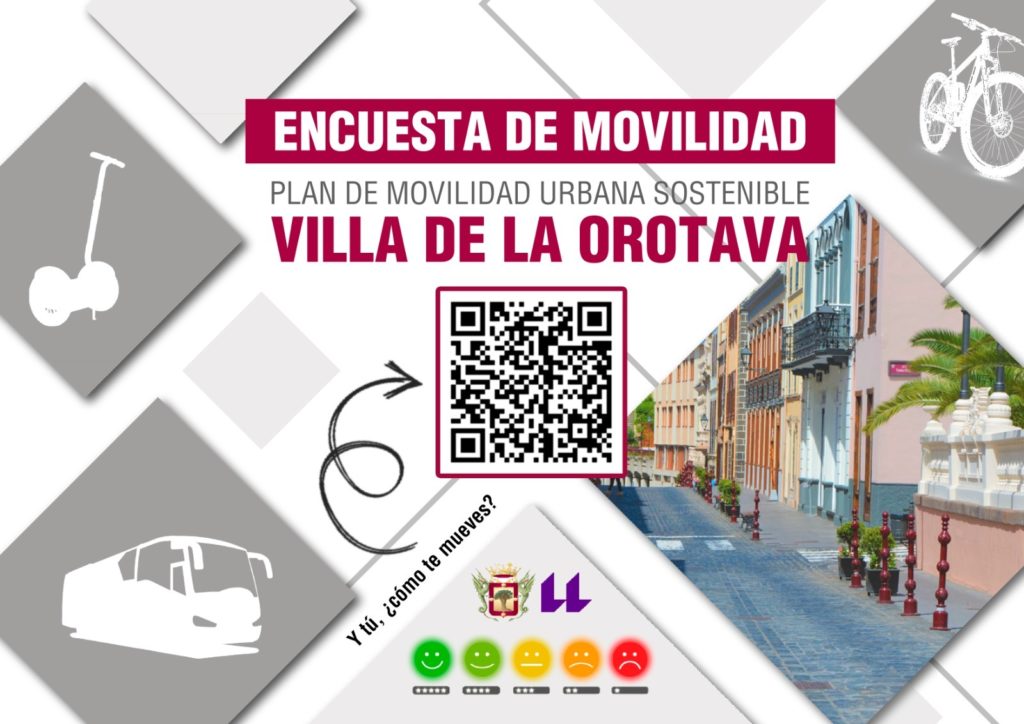
Know what means of transport you would choose to get around, determine how many trips are made through the municipality and the reasons, if you would opt for a scooter, electric bicycle or walking to do it in a more sustainable way or what means of transport you consider most appropriate to promote this same objective , are some of the questions that are formulated in the Mobility Survey launched by the City Council of La Orotava to find out the opinion of the residents regarding the drafting of the first Sustainable Urban Mobility Plan (SUMP).
This document, which will be prepared together with the University of La Laguna (ULL), aims not only to improve both pedestrian and road mobility within the Villa, but also to reduce carbon dioxide emissions in line with those established by the Organization of the United Nations and the sustainable development goals of the 2030 Agenda.
The Plan will include a set of actions that aim to implement more sustainable forms of travel in urban environments, promoting so-called ‘soft mobility’ such as walking, cycling, scooters and public transport, in which pedestrians will have preferential treatment in the local road structure. Likewise, it is intended to promote the defense of the environment, economic growth and social cohesion, guaranteeing a better quality of life and a more efficient use of natural resources.
The survey is available from yesterday until January 30, 2022. It can be accessed anonymously through a link on the municipal website and answer a series of questions that will provide the technicians who prepare the SUMP with real knowledge and preferences and citizen suggestions on this important tool for the future for the Villa.
The answers will allow us to study how the population moves to improve the way to do it as orderly and optimally as possible, but also how they would like to do it in the future, giving priority to more sustainable alternatives, such as public transport, bicycles, electric vehicles or simply on foot.
The mayor, Francisco Linares, points out that work meetings with social groups have been planned to complement the collection of proposals, which in turn will be completed with the information collected from a technical point of view, such as data on traffic intensity, noise and air pollution.
According to the Councilor for Planning and Security, Narciso Pérez, “the opinion of the public is very important because based on their responses it will be possible to articulate and propose measures adapted to the municipal reality and the needs of the population.”
















